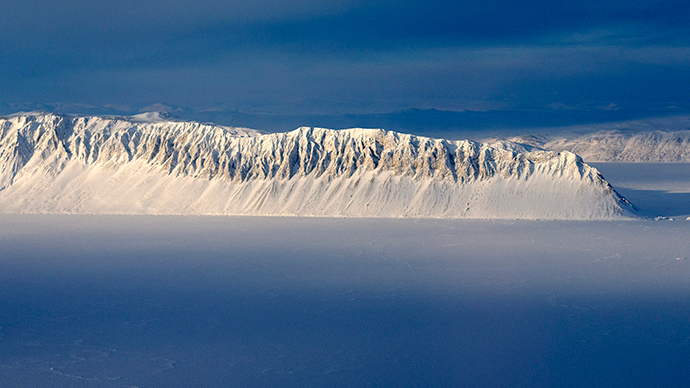Russia could protect interests in Arctic via military means – defense minister

Russia may consider protecting its national interests in the Arctic with military means if necessary, the country’s defense minister said, pointing to the increasing interest in the region’s resources by countries with no direct access to the Arctic.
“The constant military presence in the Arctic and a possibility to protect the state’s interests by the military means are regarded as an integral part of the general policy to guarantee national security,” Sergei Shoigu said at a Ministry of Defense meeting.
“It’s not a secret that the Arctic is turning into one of the world centers for producing hydrocarbons and is an important junction for transport communications,” he said. “Some developed countries that don’t have direct access to the polar regions obstinately strive for the Arctic, taking certain political and military steps in that direction.” He also noted that countries that are adjacent to the Arctic are all trying to expand their presence.
READ MORE: Russia to boost military capabilities in Crimea, Kaliningrad, Arctic
To be prepared for any threat, brand new Russian submarines have been rehearsing actions in the glacial conditions of the north since the beginning of this year. These actions follow last year’s drills of the quick reaction mobile forces that took place in the Arctic. The New Siberian Islands, Novaya Zemlya, Frantz Josef Land Archipelago, and Wrangel Island – all located in the Arctic Ocean – have seen a continuing creation of modern military infrastructure.
“To secure the safety of navigation on the Northern Sea Route and of the response to possible threats in the Arctic region, a force grouping has been increased at the Chukotski Peninsula,” Shoigu said.
READ MORE: Military dominance over Russia impossible, nuclear deterrent top priority – Defense Ministry
At the end of last year, Russia adopted a new version of its military doctrine until the year 2020, which for the first time named the protection of the country’s national interests in the Arctic among the main priorities for the armed forces. Within its framework, a joint strategic command was organized as part of the Northern Fleet in order to control and coordinate troops.
READ MORE: Russia’s military doctrine remains ‘solely defensive’ – Putin
According to existing international law, Arctic nations – Russia, the US, Denmark and Greenland, Norway, and Canada – have a right to develop the continental shelf limited by 200 nautical miles. Should a state claim further territory, it should provide a special UN commission with scientific and technical data backing the claim.
Russia has recently commenced to develop its northern regions, which includes the production of hydrocarbons, with national companies developing the exploration and construction of drilling facilities in the north of the country. The Northern Sea Route is becoming a more attractive option for shipping goods as ice melts.
The United States hopes to begin drilling for oil and gas in offshore areas of Alaska. Last week, the White House produced a set of rules to govern exploratory drilling in the Beaufort and Chukchi seas that would ensure companies and contractors are prepared for the Arctic conditions.
Last month, Denmark filed a claim with the UN for a total area of 895,000 square kilometers of the potentially resource-rich Arctic Ocean sea floor, provoking much criticism from Canada – who considers the territory its own












